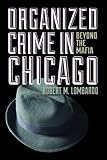Support H-Net | Buy Books Here | Help Support the NBN and NBN en Español on Patreon | Visit New Books Network en Español!
- African Studies
- African American Studies
- American Politics
- American Studies
- American South
- American West
- Asian American Studies
- Australian and New Zealand Studies
- British Studies
- Canadian Studies
- Caribbean Studies
- Central Asian Studies
- Chinese Studies
- East Asian Studies
- Eastern European Studies
- European Politics
- French Studies
- German Studies
- Iberian Studies
- India Studies
- Indian Ocean World
- Iranian Studies
- Irish Studies
- Israel Studies
- Italian Studies
- Japanese Studies
- Korean Studies
- Latino Studies
- Latin American Studies
- Mexican Studies
- Middle Eastern Studies
- Native American Studies
- Pacific Studies
- Polish Studies
- Russian and Eurasian Studies
- Southeast Asian Studies
- South Asian Studies
- Turkish Studies
- Ukrainian Studies
- Western European Studies
- World Affairs
- Animal Studies
- Anthropology
- Archaeology
- Business, Management, and Marketing
- Media
- Critical Theory
- Disability Studies
- Drugs, Addiction and Recovery
- Education
- Economics
- Finance
- Geography
- Gender Studies
- Genocide Studies
- Higher Education
- Human Rights
- Journalism
- Language
- Law
- LGBTQ+ Studies
- National Security
- Philosophy
- Policing, Incarceration, and Reform
- Political Science
- Politics & Polemics
- Public Policy
- Sex, Sexuality, and Sex Work
- Sociology
- Sound Studies
- Sports
- Urban Studies

Sep 5, 2012
The Art of Coercion
The Primitive Accumulation and Management of Coercive Power
Summary
Today we have been talking to Antonio Guistozzi about his new book The Art of Coercion: The Primitive Accumulation and Management of Coercive Power (Hurst, 2012). Antonio has written an analysis of how groups obtain and maintain their monopoly on violence in a community. This may not seem relevant to a podcast on terrorism and organized crime, however, insurgent, terrorist and criminal groups exist as challengers to the government's monopoly. They use violence to oppose government, or in the case of organized crime, create their own centres of power. All these groups can also create havens where they exercise their own monopoly on violence. Antonio's book is full of historical information and political scientific arguments which give a thorough explanation of the difficulties of creating and holding this monopoly. But, as you will hear in the interview, he has a particular interest in Afghanistan where he conducts most of his research. This experience provides him with an excellent contemporary case study to explain the theses of the book. Antonio tries to move away from the traditional explanations of violence based on economic theories of rational actors and instead explains the sociology of violence from empirical evidence and political necessity. This book changed my assumptions about the environment of political action especially in developing countries facing insurgent movements.























































































